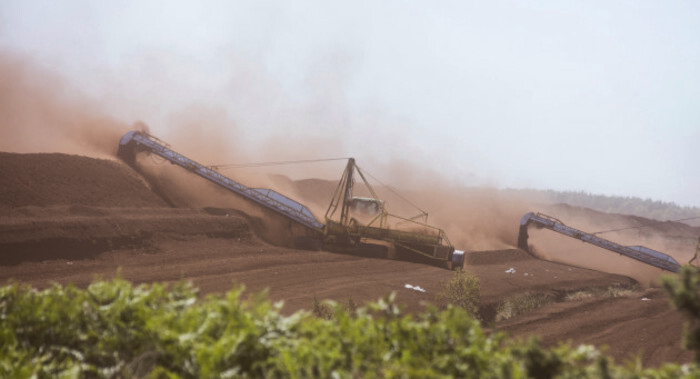Carbon tax and just transition: What Budget 2020's climate measures mean for business
Aside from Brexit, the climate emergency was a big priority in this year’s budget announcement.
AS EXTINCTION REBELLION protesters took to the streets of Dublin for the second day in a week-long demonstration, Finance Minister Paschal Donohoe announced that “climate change is without a doubt our defining challenge”, in Budget 2020 – apart from Brexit of course.
An increase in carbon tax, the introduction of a just transition fund and a nitrogen oxide tax to replace the diesel surcharge on all newly registered passenger vehicles were all part of the measures announced today by the minister.
But some bodies and experts have suggested that the measures are just the tip of the proverbial iceberg and more needs to be done if we’re to hit our 2030 carbon reduction targets.
“Carbon tax alone will not deliver the emission reductions that we need to meet our climate targets, it’s very much about also encouraging changing behaviors in both businesses and communities,” Lorraine McCann, climate change and sustainability services leader at EY, said.
The carbon tax will be raised by €6 per tonne from midnight, set to raise about €90 million in 2020. It currently stands at €20 per tonne – the plan is to raise that to €80 by 2030 with incremental annual changes.
Fuel intensive companies like Bord na Móna, or companies “that have fleets, or have a reliance on transportation networks and infrastructure” will feel the effects of those increases “almost immediately”, she said
The carbon tax is “only a start”and “needs to be accompanied by a range of measures that help people get off carbon intensive activity”, Peter Thorne, professor of physical geography in Maynooth University, said.
The levy will initially target petrol and diesel and will affect home heating fuel from May next year – which will be counterbalanced by a bump in the fuel allowance.
This additional revenue will be ring-fenced for climate action measures including sustainable mobility projects, new agri-environmental schemes and low-carbon future-proofing.
The minister also announced a just transition fund of €6 million to support workers in carbon intensive industries.
“I think without Brexit there almost certainly would have been a more ambitious budget with regard to climate change,” Thorne said.

‘A bigger message’
The diesel surcharge will be replaced in 2020 by a nitrogen oxide tax to encourage consumers to move towards more environmentally hybrid and electric vehicles.
Combined with the carbon tax, this means being a car owner from 2020 will get more expensive.
“There’s a bigger message through this that businesses need to look at sustainability and climate change as a significant risk for business. That’s not something I think has been done very well across the island of Ireland to date,” said McCann.
The carbon tax hike gives Irish businesses just ten years to “rapidly consider how they’re going to improve their own economic performance, grow their businesses while also ensuring they protect the environment and improve their social contributions”.
Some key questions, she added, are whether businesses are aware of the climate risks they’re exposed to “and are they aware of the potential implications, not just at a company level but across the supply chain”, she said.
“This is something I can’t stress enough. The cost of raw materials will continue to increase.”
Businesses that fail to acknowledge these changes risk falling behind, she said, adding that she hopes the budget will be a “catalyst for business to realise that climate change is here to stay – and it’s going to become increasingly difficult to comply over the next couple of years”.
The minister also announced an equalisation of electricity tax for businesses and non-businesses as well as a range of climate related tax changes to apply to motoring as part of the budget.
Mike Hayes, global renewables leader at KPMG, welcomed the budget’s focus on decarbonisation as a step in the right direction but warned that “we can’t underestimate the urgency required”.
He added that the responsibility should be fairly shared – so the most vulnerable are not unduly impacted.
“Therefore, in addition to carbon taxes, there are other legislative changes that government should consider to enable this country to move to zero net carbon by 2050. Many of the potential solutions can provide positive socio-economic benefits for society such as accelerating our offshore wind ambition,” he said.
Get our Daily Briefing with the morning’s most important headlines for innovative Irish businesses.






